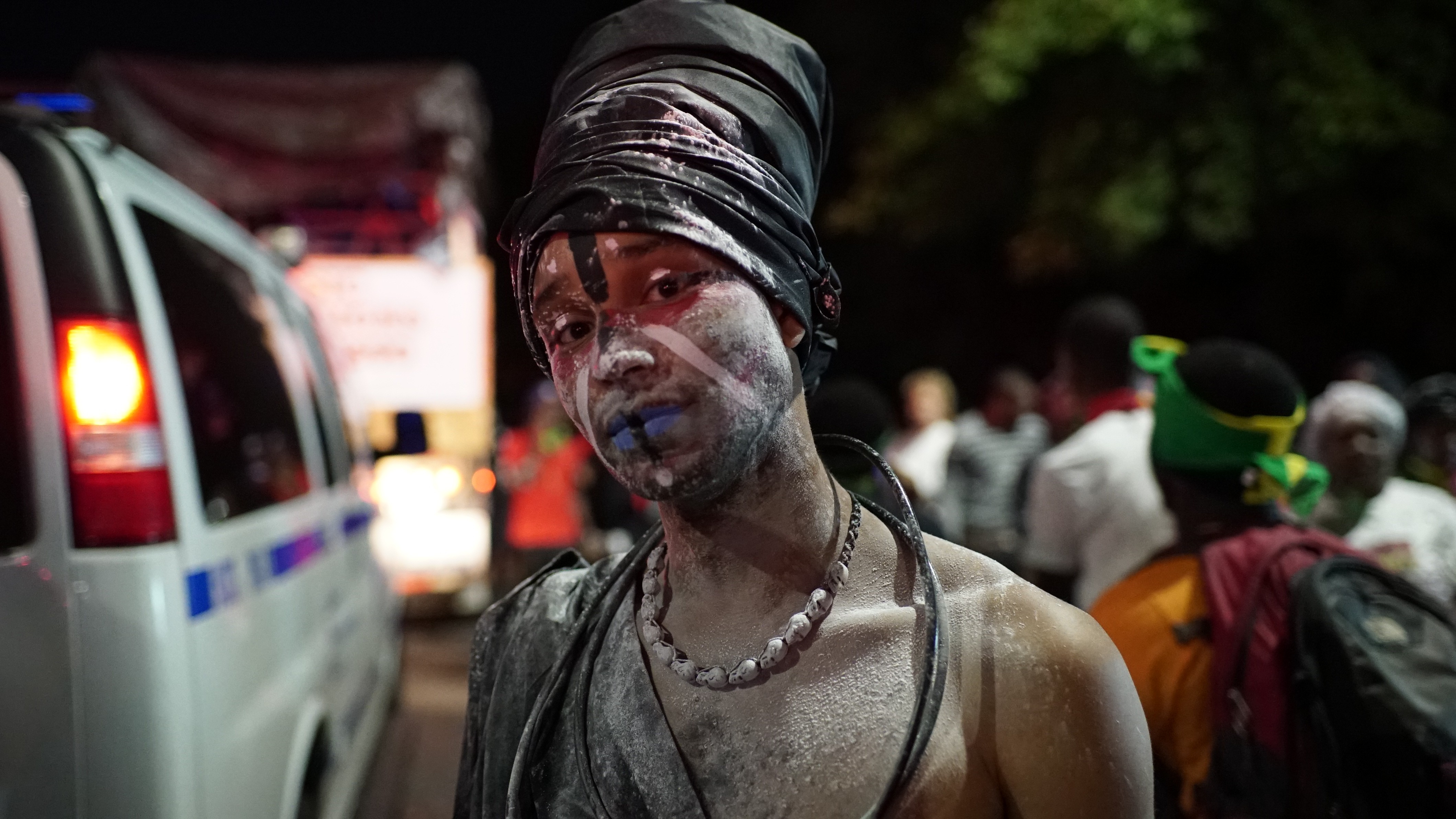To learn more about the culture and history of J'ouvert, watch the doc below:

To capture the rift between revelers and the police, we sent photographer Ruddy Roye to cover J'ouvert and the subsequent West Indian American Day Parade. Roye lives in Brooklyn, but his roots are in Jamaica, giving him a deep understanding of the Carnival tradition in New York and the Caribbean. Roye's work is especially renowned for the humane and dignified light in which he presents ostracized and oppressed people. He was named TIME's "Instagram Photographer of 2016" and his work has appeared everywhere, from the New York Times to Vogue.
Revelers mocked an NYPD officer as they made their way down Nostrand Avenue towards the end of the Jouvert celebrations
A reveler dared an NYPD officer to open his window so he could dust him with Jouvert powder
A parkway reveler being told that she could not reenter the parade after getting some refreshments. She was told by the officer that she had to enter on the other side of the street even though the "exit side" of the street was empty. Her protest was that there was a long line of people waiting to cross on the other side and she would lose the opportunities ty to dance with her float.
